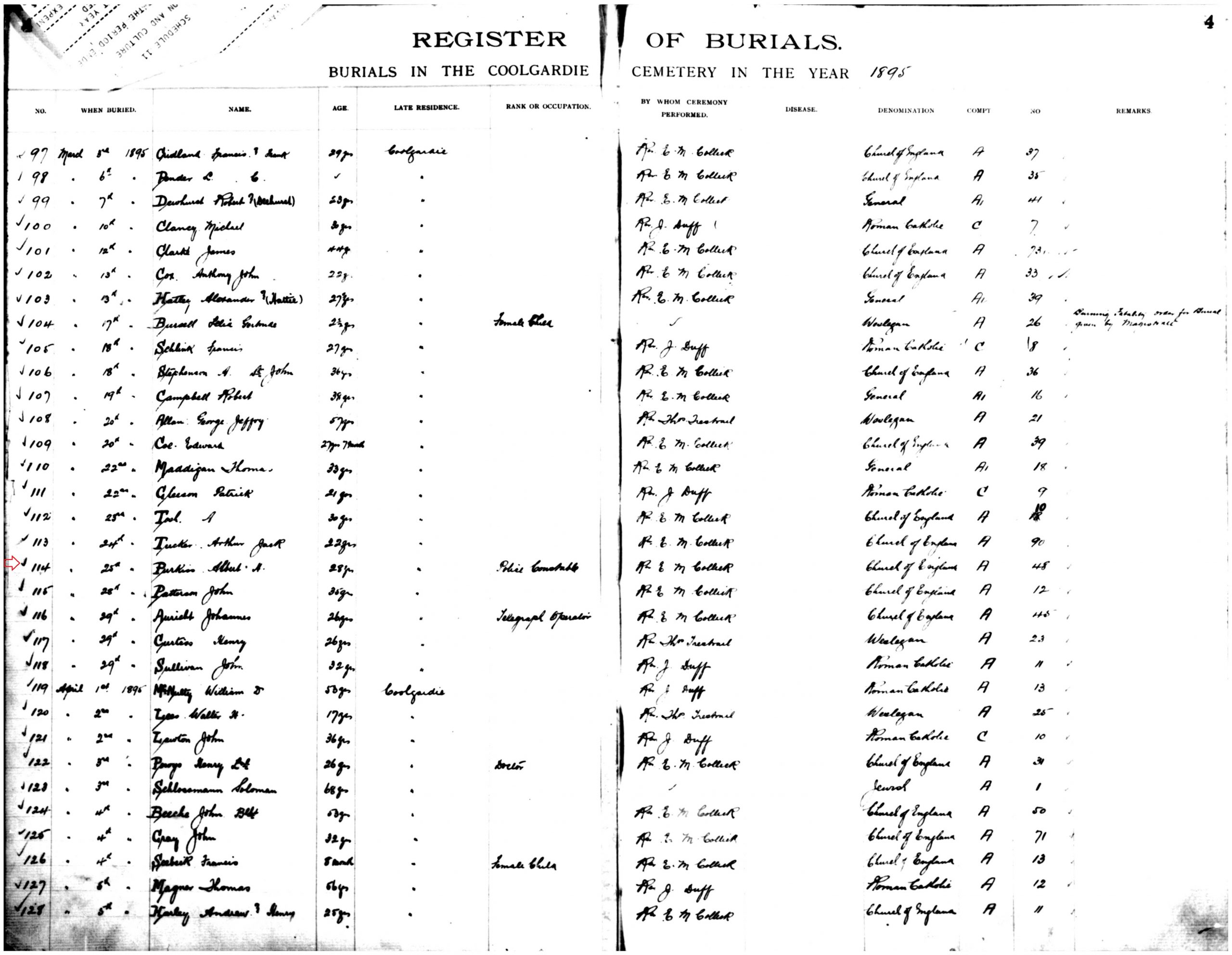By Judy Purkiss MAAGRA
Family stories are passed down over time and details change! Facts either aren’t heard properly, not all details are passed down, misinterpreted, embellished or softened depending upon the story.
There is usually an element of the truth in the stories, though occasionally, that’s not the case. The challenge for the genealogist / family historian is to find the facts to verify what the truth is.
We will look at the case of Albert Purkiss who travelled from South Australia to Western Australia in the late 1890’s.
Albert’s story came up when researching his brother Alfred’s history for the Purkiss line. Alfred was the director ancestor of the family being researched and when speaking with family, I noted that it had been recorded that Alfred and Albert were both policeman in the Western Australian country towns in the 1890’s. I was given a copy of the Coolgardie Cemetery Listing that showed that Albert was buried on the 25 March 1895 and that the cemetery index stated he was 28 years and that his occupation was listed as “Police Constable”. Family stories indicated that he’d gone to the Southern Cross Goldfields and that it was thought that he died of pleurisy and was transported by train from Southern Cross to Coolgardie train station and then by spring cart from the train station to the cemetery. As there is a history of service in the police force in the family, they were looking for more details on his career and this had been difficult to find.
The next step was to research records that are available to find the facts. I was fairly confident that his police record would be relatively easy to locate in the records.
Here’s what was found:
• Searched TROVE again regarding fever around this time and found that Southern Cross and Coolgardie had an outbreak of Typhoid Fever in that area at the time. This is likely the fever listed on Albert’s death certificate.
From the information located, it appears that Albert was not a policeman but a businessman. It appears he came to WA to see his brother and do some prospecting as Coolgardie and the areas around it were in the gold rush. It appears he died of typhoid fever & meningitis. Burials were happening quickly at this time to reduce spread of infection, so it would seem that Albert being listed as a policeman was an error, perhaps they thought he was his brother Alfred. I also think his name being on Brian Purdee’s list of policemen is an error, probably because he was listed as a policeman on the cemetery listing so that is likely where the information initiated.
One further piece of information was located later that also fit with evidence previously located. While researching one of Alfred’s daughters, I located an “oral history” at the State Library of WA. I went in to listen and Alfreds daughter Doris Norrish (nee Purkiss) had said in the recording, “Alfred’s brother Albert came to WA as Alfred was so happy here that he decided to join him.” She said “that soon after Albert arrived, Alfred had to go to Perth on Gold Escort duty and left Albert with a friend.” She said “that by the time her father returned, her father said ‘his brother was dead and buried, that’s the way typhoid takes you’.”

